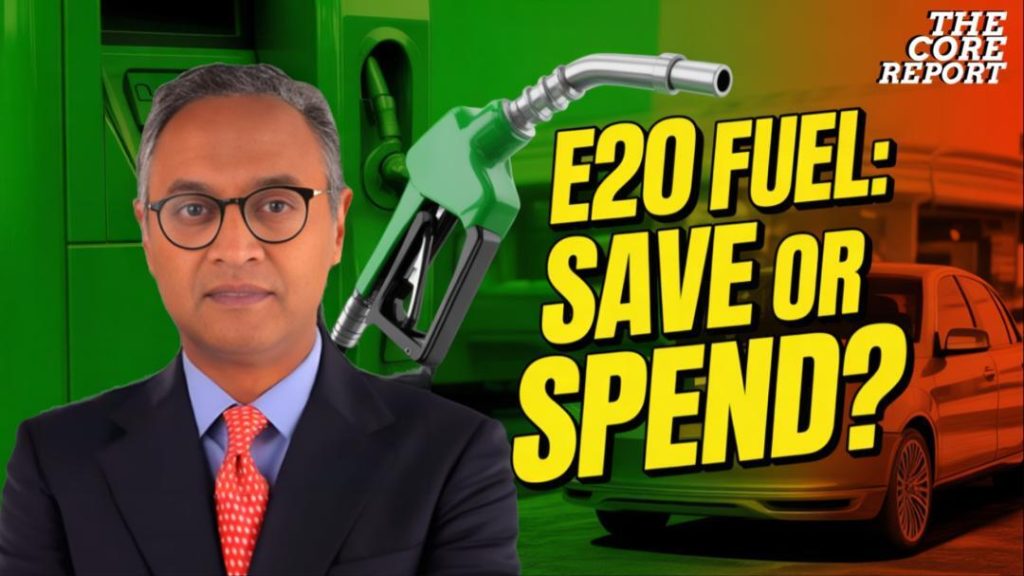
E20 Fuel in India: Benefits, Risks & What Vehicle Owners Must Know
As India continues its quest to reduce carbon emissions, boost energy security, and support its farming sector, the government has introduced a new fuel blend: E20. This 20% ethanol-based petrol is designed to replace traditional petrol and has been gaining traction across the country. But what does this mean for vehicle owners? In this blog post, we’ll delve into the benefits, risks, and essential information you need to know about E20 fuel in India.
Benefits of E20 Fuel
The Indian government has touted E20 as a game-changer in the country’s energy sector. Some of the key benefits of this new fuel blend include:
- Reduced Carbon Emissions: E20 fuel produces significantly lower carbon emissions compared to traditional petrol, making it a more environmentally friendly option.
- Energy Security: India is the world’s second-largest oil importer, and E20 helps reduce the country’s reliance on foreign oil imports.
- Supporting Farmers: The use of ethanol in E20 fuel provides a new market for Indian farmers, helping to boost the agricultural sector.
- Improved Engine Performance: Government studies have reported improved acceleration and overall engine performance when using E20 fuel.
Risks and Concerns
While E20 fuel offers several benefits, there are also some risks and concerns that vehicle owners must be aware of:
- Older Vehicles: Vehicles not designed for E20 fuel may suffer from engine wear, fuel system corrosion, and mileage loss. This could lead to costly repairs and maintenance.
- Incompatible Fuel Systems: Older vehicles may have fuel systems that are not compatible with E20 fuel, which could cause issues with engine performance and fuel efficiency.
- Higher Maintenance Costs: Some experts suggest that E20 fuel may require more frequent maintenance and repairs, which could increase costs for vehicle owners.
What Vehicle Owners Must Know
As the government plans to make E20 fuel mandatory for all new vehicles by 2025, it’s essential for vehicle owners to understand what this means for their vehicles. Here are some key points to keep in mind:
- Check Your Vehicle’s Compatibility: If you own an older vehicle, check your owner’s manual or consult with a mechanic to determine if your vehicle is compatible with E20 fuel.
- Update Your Vehicle’s Fuel System: If your vehicle is not designed for E20 fuel, you may need to update your fuel system to ensure compatibility.
- Monitor Your Vehicle’s Performance: Keep an eye on your vehicle’s performance and report any issues to your mechanic or the manufacturer.
- Be Prepared for Higher Maintenance Costs: As mentioned earlier, some experts suggest that E20 fuel may require more frequent maintenance and repairs. Be prepared for higher costs and plan accordingly.
The Future of E20 Fuel in India
As the Indian government continues to promote the use of E20 fuel, it’s likely that we’ll see significant changes in the country’s energy sector. By 2025, all new vehicles will be E20-compliant, which should ease adaptation concerns for vehicle owners. Additionally, the government’s efforts to promote E20 fuel will likely lead to increased demand for ethanol, benefiting Indian farmers and the agricultural sector.
Conclusion
E20 fuel offers several benefits, including reduced carbon emissions, improved engine performance, and support for Indian farmers. However, vehicle owners must also be aware of the risks and concerns associated with this new fuel blend. By understanding the benefits, risks, and essential information, vehicle owners can make informed decisions about their vehicles and the future of E20 fuel in India.
News Source:






